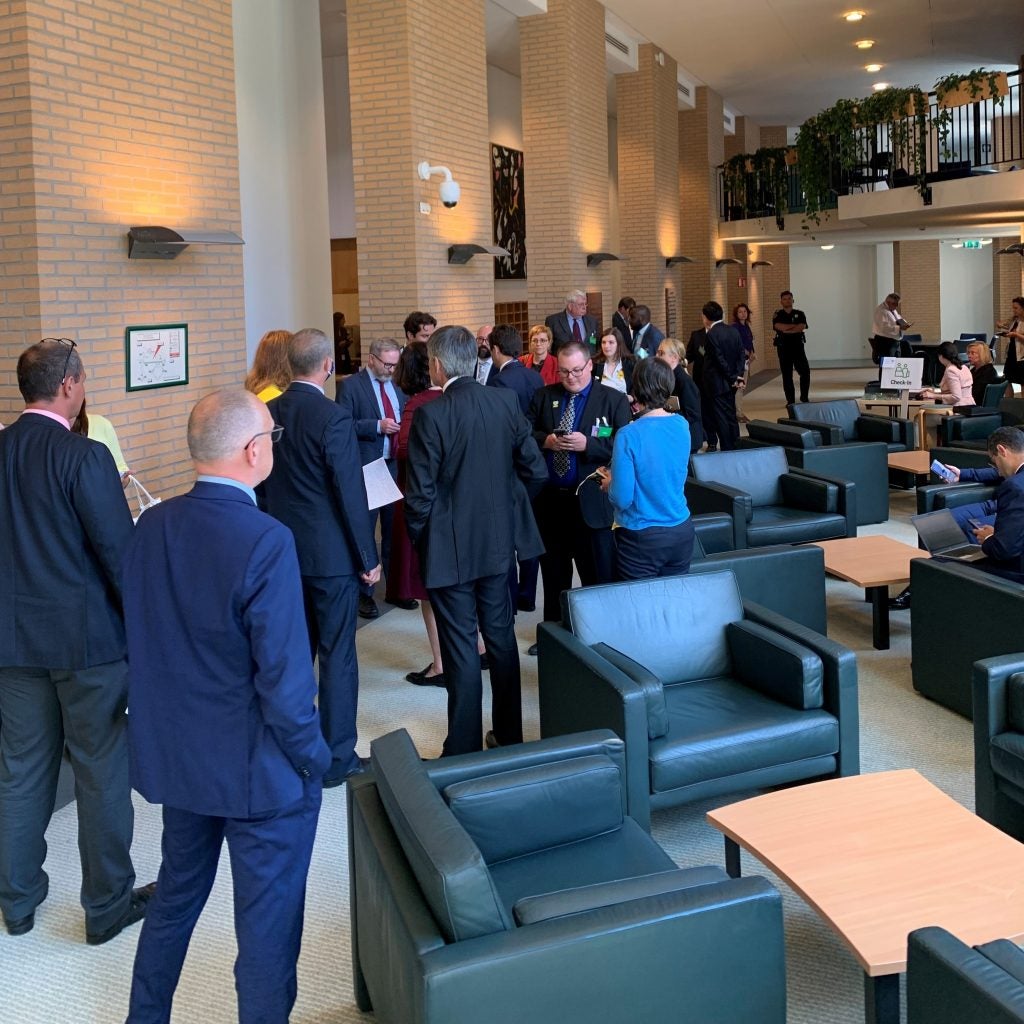Russian Ambassador’s “Brazen Falsehoods” Cause Walkout At Chemical Weapons Meeting
Representatives of Canada, Ireland, Australia and several European Union countries among others walked out of a Tuesday meeting of the Organization for the Prohibition of Chemical Weapons, after Russia’s ambassador to the chemical weapons watchdog made a series of false statements during the 100th session of the organization’s Executive Council.
Russian OPCW ambassador Alexander Shulgin accused Ukraine of being a “fascist” state, alongside repeating unfounded claims by the Russian government that the Ukrainian government would engage in false flag chemical attacks to justify escalation in its defense against invading Russian forces. Shulgin also lashed out at open source researchers Bellingcat, accusing the organization of being directed by Western governments in their investigations of chemical weapons attacks in Syria by the Russian-backed Assad regime, as well as investigations into the poisonings of Sergei and Yulia Skripal and Alexei Navalny by Russian security services using novichok nerve agents.
Moscow has had an increasingly troubled relationship with the OPCW, after the United Kingdom led 44 other nations in October 2021 in using the Chemical Weapons Convention’s (CWC) Article IX “to obtain clarification from another state party on any situation which may be considered ambiguous or which gives rise to a concern about its possible non-compliance” following the Navalny poisoning. In response, Russia has repeatedly attacked the credibility of the OPCW, with the UK’s OPCW delegation noting later on Tuesday that “Russia has still not addressed the substance of Art IX Qs posed by 45 (State Parties) about the attack on Navalny”.
The Russian government has also repeatedly attacked the OPCW in defense of its client Assad regime, after the OPCW found that Damascus’ forces were responsible for eight separate chemical attacks in Syria. The Assad regime has repeatedly blocked the efforts of the OPCW’s Technical Secretariat in investigating the attacks and other suspected attacks, with the OPCW reporting at the meeting that Damascus was still blocking investigator access to suspected attack sites. As a result, the OPCW found Syria to be in violation of its CWC obligations in April 2021, suspending its delegation’s ability to vote and hold office in the organization, the first ever member state to be subject to such measures.
With the OPCW’s fifth Review Conference scheduled for May 2023, the United Kingdom’s ambassador Joanna Roper has said that the UK will look beyond setting the organization’s strategic direction for the next five years, saying that it will work to ensure that the OPCW’s verification regime is “fit for the next twenty-five years and beyond” through a series of capability-building initiatives. These measures, which include support for the OPCW’s under-construction Centre for Chemistry and Technology, will help enhance the OPCW’s ability to respond to new threats from state and non-state actors alike, and hopefully ensure accountability for those found to have used chemical weapons.

